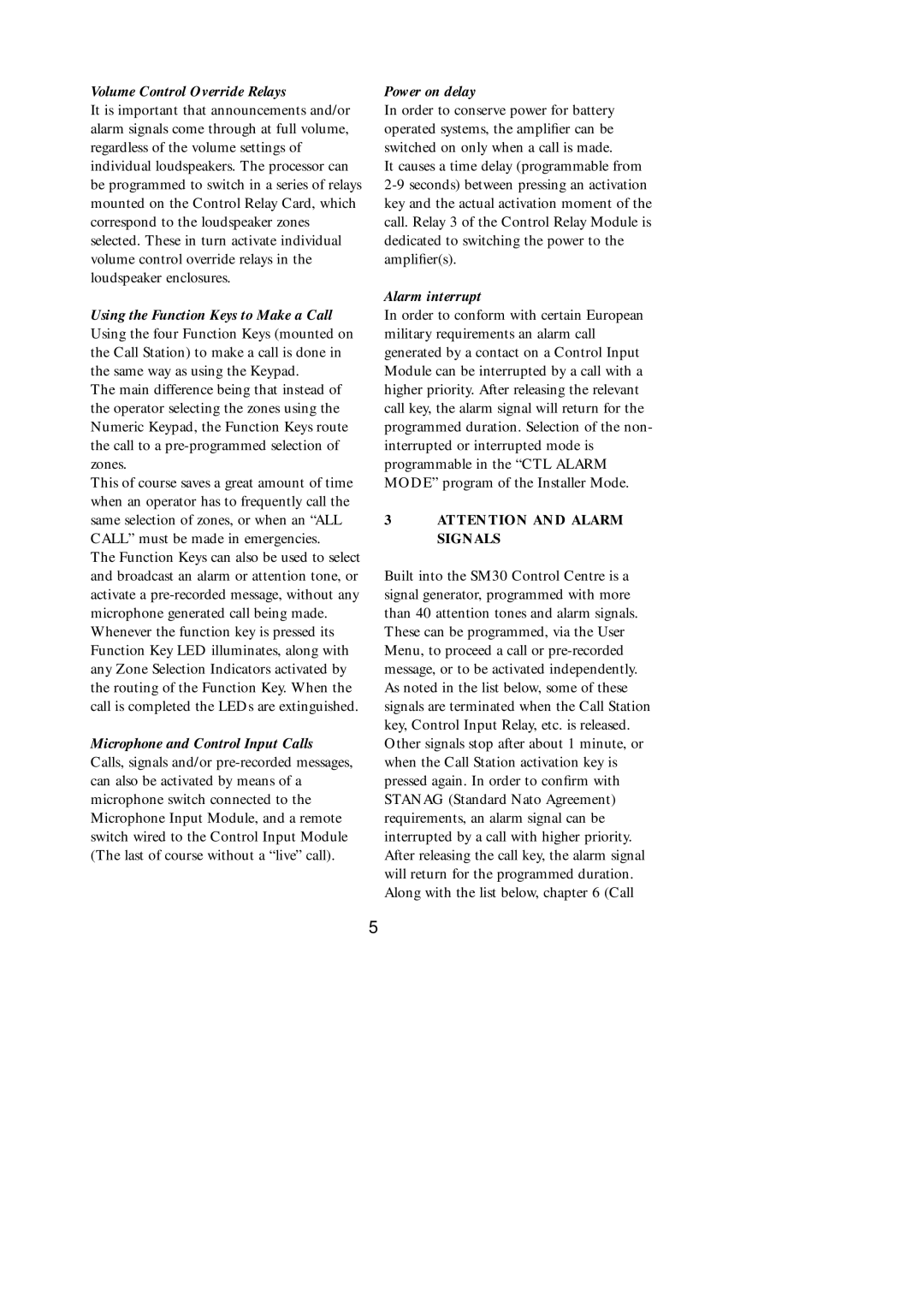
Volume Control Override Relays
It is important that announcements and/or alarm signals come through at full volume, regardless of the volume settings of individual loudspeakers. The processor can be programmed to switch in a series of relays mounted on the Control Relay Card, which correspond to the loudspeaker zones selected. These in turn activate individual volume control override relays in the loudspeaker enclosures.
Using the Function Keys to Make a Call Using the four Function Keys (mounted on the Call Station) to make a call is done in the same way as using the Keypad.
The main difference being that instead of the operator selecting the zones using the Numeric Keypad, the Function Keys route the call to a
This of course saves a great amount of time when an operator has to frequently call the same selection of zones, or when an “ALL CALL” must be made in emergencies.
The Function Keys can also be used to select and broadcast an alarm or attention tone, or activate a
Whenever the function key is pressed its Function Key LED illuminates, along with any Zone Selection Indicators activated by the routing of the Function Key. When the call is completed the LEDs are extinguished.
Microphone and Control Input Calls Calls, signals and/or
Power on delay
In order to conserve power for battery operated systems, the amplifier can be switched on only when a call is made.
It causes a time delay (programmable from
Alarm interrupt
In order to conform with certain European military requirements an alarm call generated by a contact on a Control Input Module can be interrupted by a call with a higher priority. After releasing the relevant call key, the alarm signal will return for the programmed duration. Selection of the non- interrupted or interrupted mode is programmable in the “CTL ALARM MODE” program of the Installer Mode.
3ATTENTION AND ALARM SIGNALS
Built into the SM30 Control Centre is a signal generator, programmed with more than 40 attention tones and alarm signals. These can be programmed, via the User Menu, to proceed a call or
5
